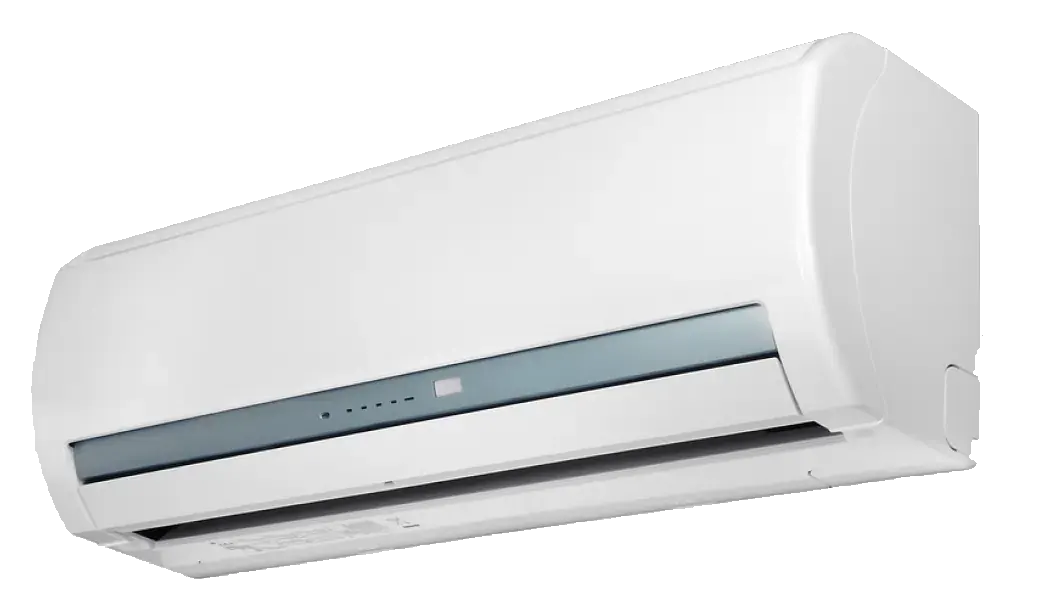Why mould in your air conditioner unit is bad for you
What exactly is Mould?
When we hear the word “mould” we automatically know it's not something we want to contend with. But what exactly is mould?
Mould is a type of fungi, that flourishes in damp and poorly ventilated spaces, and it thrives on plant and animal matter and loves damp wet environments. It's important to know that when you notice the first signs of mould, it needs to be addressed promptly as the longer you leave it the worse it becomes. Mould reproduces very quickly by releasing airborne spores, these spores rapidly spread, becoming a major issue not only to your health but also to your property. The growth of mould in your home or office can rapidly spread on walls, ceilings, flooring, and carpets, and is commonly found in damp buildings.

Health risks of mould in your air conditioner
Did you know mould can grow in your AC unit? And should this happen it can be very hazardous to your health, particularly for individuals with respiratory issues and allergies. Moreover, mould exposure can exacerbate certain existing health conditions, making it essential to address mould problems promptly to safeguard your well-being. The reason it's a serious issue when found in your air conditioner is it compromises the overall air quality in your living or working space. As mould thrives in moist environments air conditioners are an ideal breeding ground if not properly maintained.

Let's explore the various reasons why mould in your air conditioner is detrimental to your health and how you can prevent its growth
- Respiratory Issues
Mould releases tiny spores into the air that can be inhaled, leading to respiratory problems, especially for individuals with allergies or asthma. Common symptoms include coughing, wheezing, shortness of breath, throat irritation and nasal congestion.
- Allergic Reactions
Mould spores can trigger allergic reactions in some people, causing sneezing, runny or stuffy nose, itchy eyes, and skin rashes. Prolonged exposure to mould can worsen these symptoms over time.
- Infections
Some moulds produce mycotoxins, which can lead to infections if they come into contact with vulnerable areas of the body, such as open wounds or mucous membranes.
- Headaches and Fatigue
Breathing in mould spores can also result in persistent headaches and general fatigue, as the body tries to cope with the foreign particles.
- Exacerbation of Existing Conditions
People with pre-existing respiratory conditions, such as chronic obstructive pulmonary disease (COPD), may experience worsening of their symptoms due to mould exposure.
Causes of Mould Growth in Air Conditioners:
- Humidity
High humidity levels within the air conditioner create a favourable environment for mould growth. As warm air is cooled by the AC, moisture condenses on the cooling coils, which, if not drained properly, can lead to mould development.
- Poor Maintenance
Lack of regular cleaning and maintenance of the air conditioner can cause dust, dirt, and organic debris to accumulate in the unit. Mould can feed on these organic materials, leading to mould growth over time.
- Improper Sizing
An incorrectly sized air conditioner may not cool the space effectively, leading to increased humidity and condensation, providing a breeding ground for mould.
Prevention is better than the cure:
Regular Maintenance - Schedule routine maintenance for your air conditioner, including cleaning or replacing air filters, inspecting coils, and ensuring proper drainage.
Keep the Area Dry - Address any water leaks or condensation issues in and around the air conditioner promptly.
Control Humidity - Use a dehumidifier to maintain optimal humidity levels indoors, especially during humid weather.
Proper Ventilation Ensure proper ventilation in the area where the air conditioner is installed to improve air circulation.
Professional Inspection - If you suspect mould growth in your air conditioner, contact a professional air conditioning technician to inspect, service and clean the unit thoroughly. With regular maintenance, proper cleaning, and humidity control you will help prevent mould growth. Taking these precautions will improve the performance and lifespan of your air conditioner as well as safeguard the well-being of everyone in your living or working space.
Trusted Air Conditioning Specialists
Sea Air Mechanical Service technicians have a wealth of knowledge with all aspects of air conditioning, to speak to one of our qualified technicians simply call 0401 787 183 or complete our online booking form. We provide our services to Brisbane, Sunshine Coast, Moreton Bay, Gympie, and the Gold Coast.



